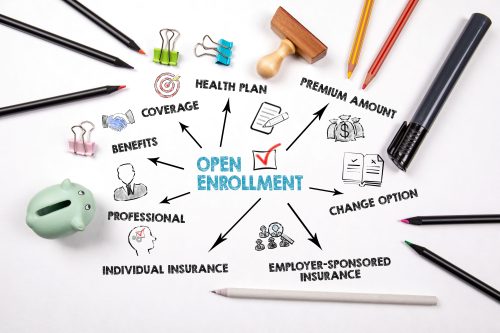It’s the million-dollar question — and it may take more than that — but are you prepared to retire? What is your plan for retirement?
Your lifestyle costs, annual income, investment returns, savings, and even how much insurance you have are some of the critical areas that need to be addressed throughout your life, as they impact your ability to be financially independent.
Here are five of the biggest hurdles that can trip you up along the path to a secure retirement:
No financial plan.
Retirement can last 20 years or more. Therefore, you should design a plan that spells out your financial needs and how you intend to get there. Not having such a plan is like trying to find a faraway destination without a map (or, in today’s world, a GPS). When considering how much money you need, don’t forget to consider inflation and the increasing cost of health care as you age. Then determine how much your investments will kick off annually. Here are a few questions that a financial planner can help you answer:
- What income will be available to you (i.e., pension, retirement accounts, and Social Security)?
- When should you take Social Security (and what will be the difference if you take it at 70 vs. 66 or 62)?
- Should you consider working part-time during retirement?
- Do you need to downsize or relocate to lower your living expenses?
- How much can you afford to leave for your loved ones?
No investment strategy.
As you near retirement, it is more important than ever to have a well-diversified portfolio. Additionally, while a riskier approach may have made sense when you were in your 40s and 50s, now may be the time to adjust your portfolio to a more conservative approach (while at the same time not being so conservative that you fail to consider inflation). An investment portfolio invested in different asset classes, consisting of both equity and fixed-income investments, will reduce the level of volatility and risk. Similarly, it is crucial at this stage not to react emotionally to any market swings. Work with an investment advisor or financial planner to determine an asset allocation that you are comfortable with and will help you meet your goals.
No estate plan.
We highly recommend having an estate plan to ensure your wishes are carried out after your death (or should you become incapacitated). The three estate planning documents you should have include:
- A Will spelling out who will receive your assets and who will manage the distribution of your estate;
- A Power of Attorney, identifying who will act on your behalf on financial matters should you become incapacitated and
- An Advance Medical Directive (or Living Will) detailing your final wishes and identifying who may speak to your doctors in life-ending situations if you cannot communicate. Review these estate planning documents every few years to ensure they remain up-to-date.
No long-term care plan.
Medical insurance will not pay for custodial care, whether at home or in an assisted living facility or nursing home. Having to pay for long-term care can cause you to burn through your assets very quickly. While not everyone will need long-term care, the odds are not in your favor. Studies show that three in four people over the age of 65 need custodial care at some point in their life. Long-term care insurance is expensive and is best purchased when you’re young and healthy. A financial planner can help you determine how long-term care insurance might fit into your budget.
No “what comes next” plan.
You may be waiting eagerly for the day you stop working, but do you have a good idea about what comes next? Retirement is not like going on a two-week vacation. Most people quickly get bored playing golf or visiting their grandchildren every day. Do you plan on working part-time? Volunteering? Devoting more time to a passion or hobby? Take time to consider how you wish to fill your days so that you feel fulfilled. Ensure your financial plan, retirement plan, and investment portfolio align with your goals.
Addressing each of these areas will increase the likelihood of a successful retirement. We suggest sitting down with a trusted financial planner to ensure that you have considered every option and “what if” scenario. Reprinted from New York Trend.
















